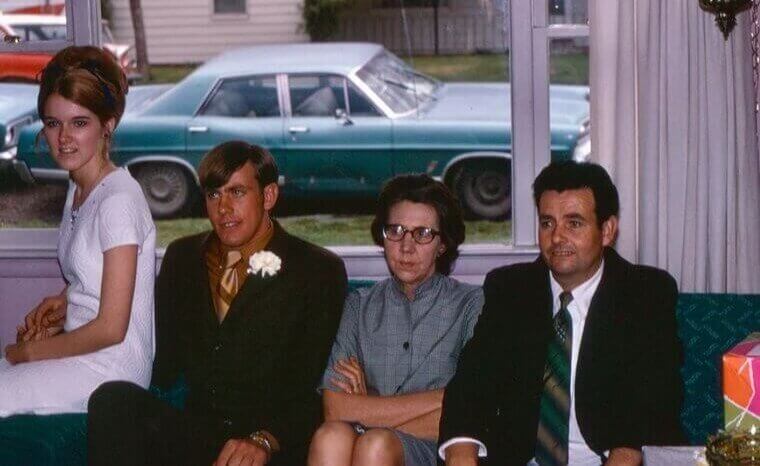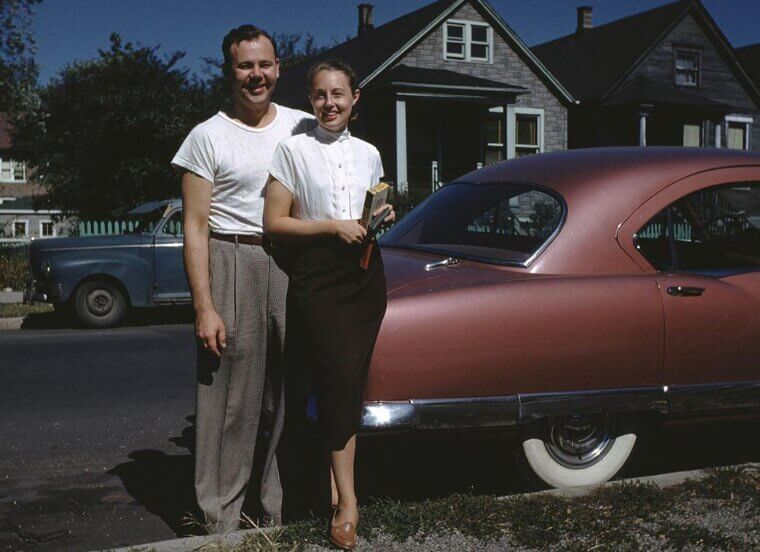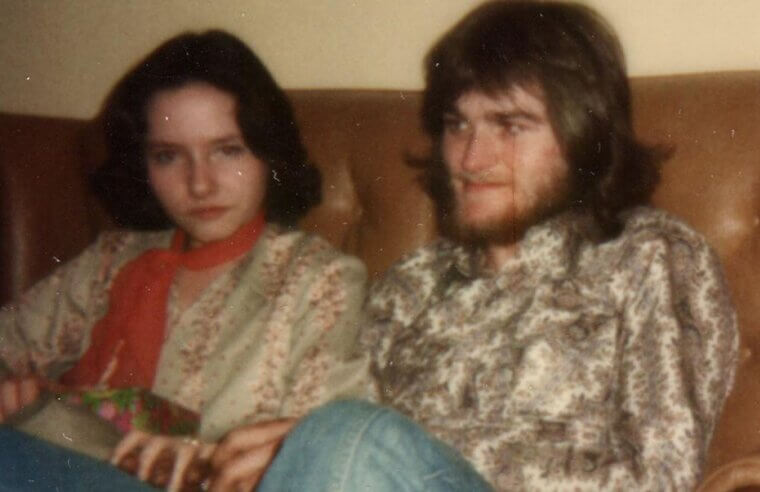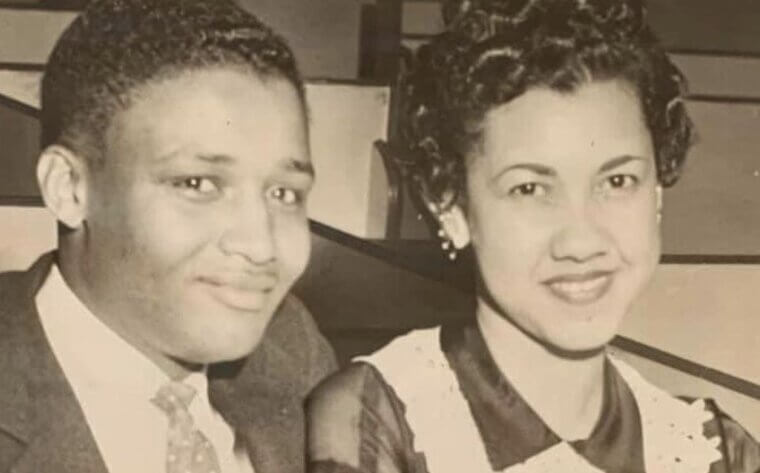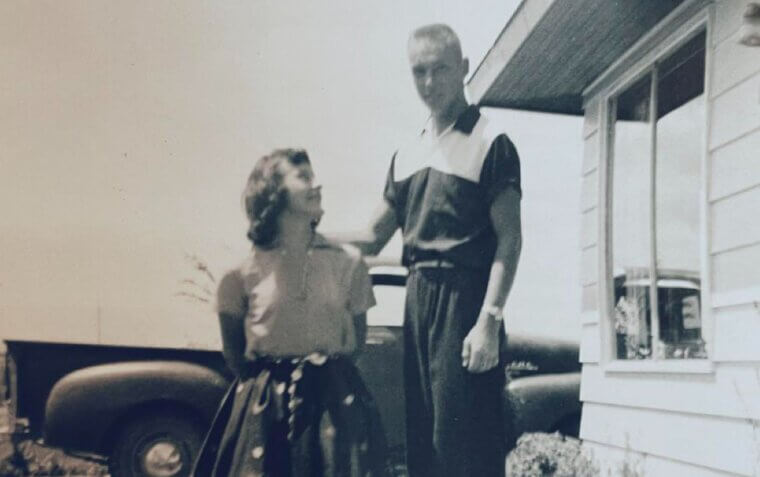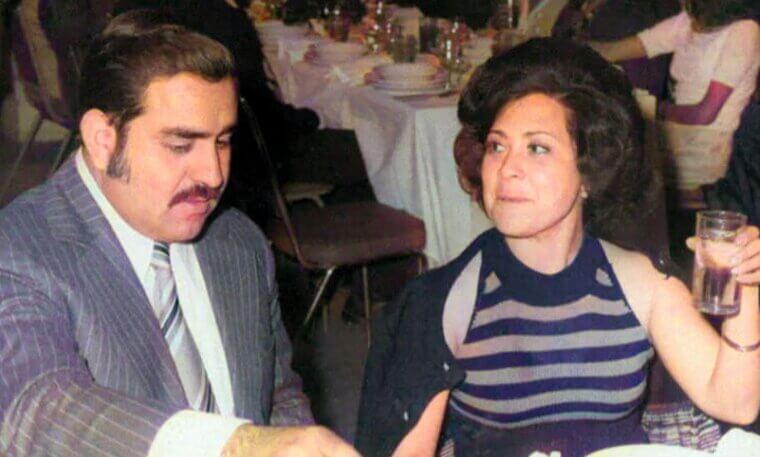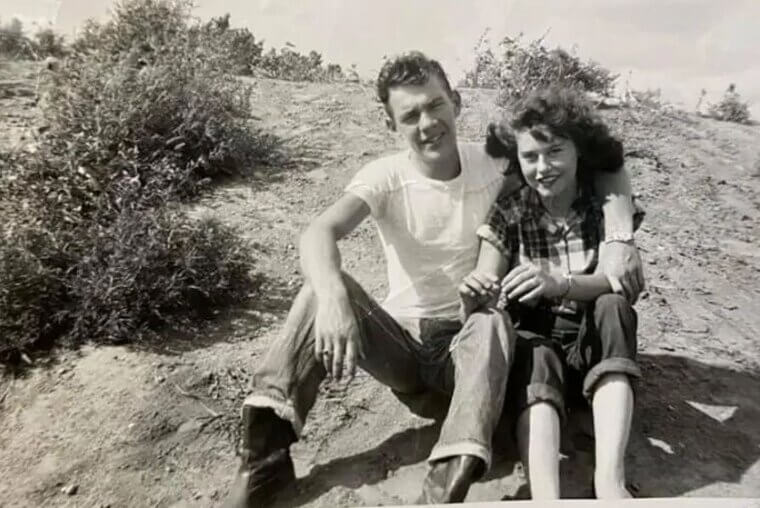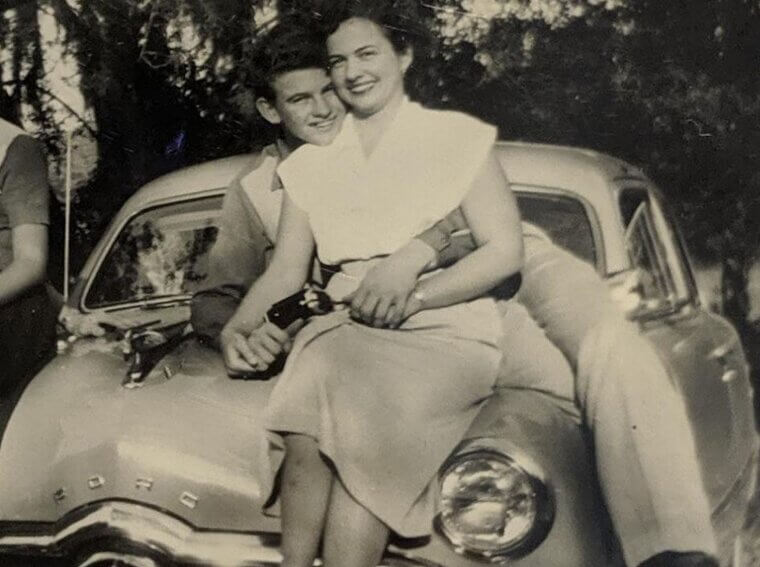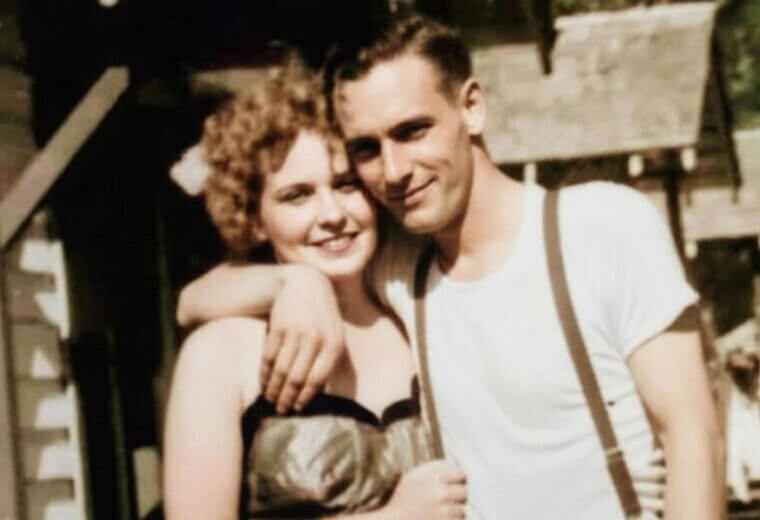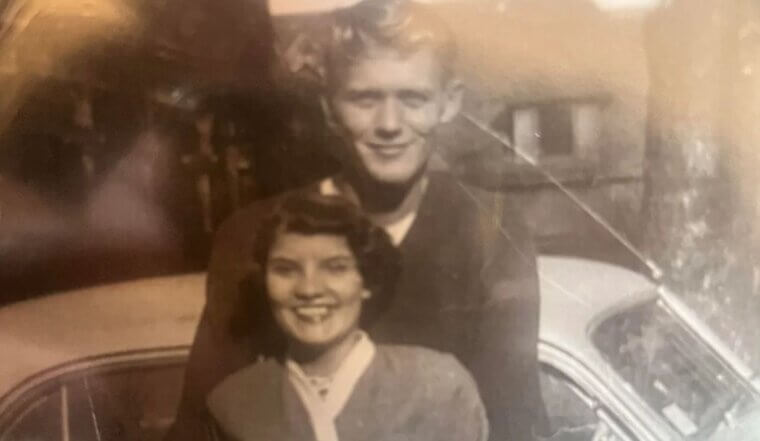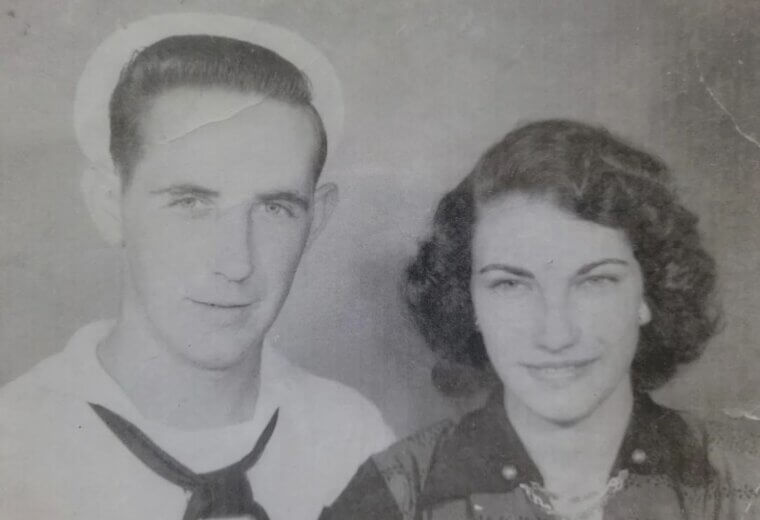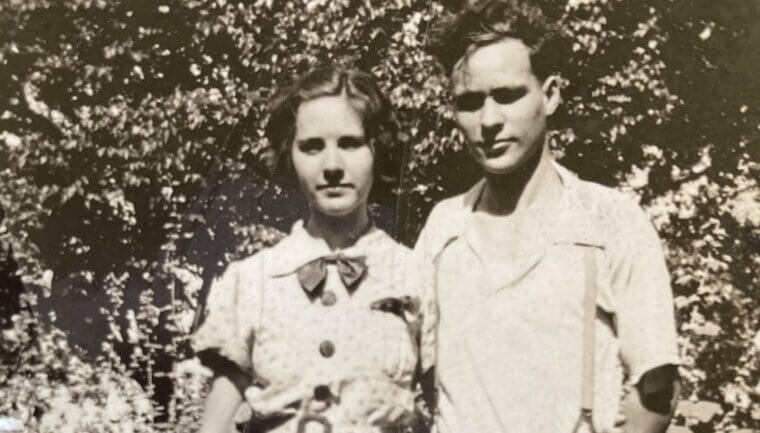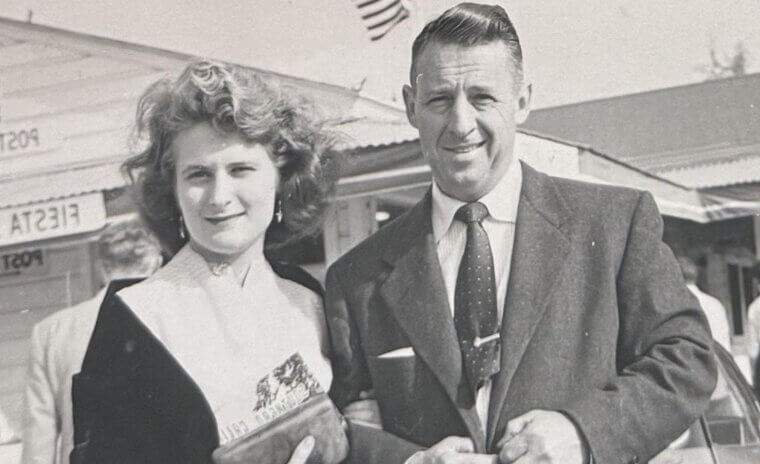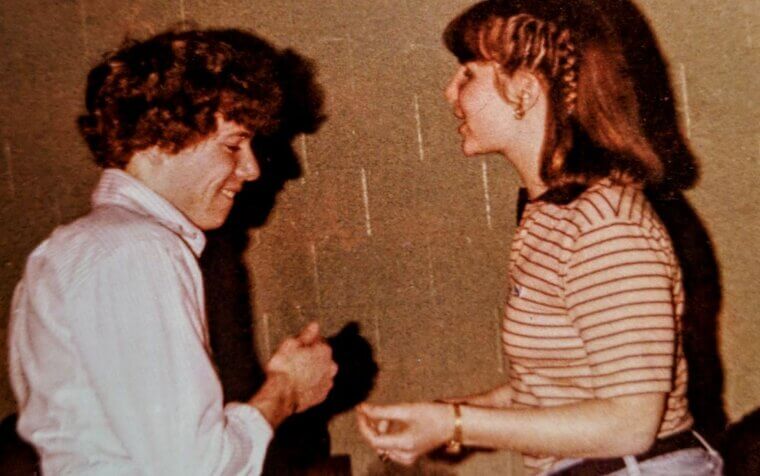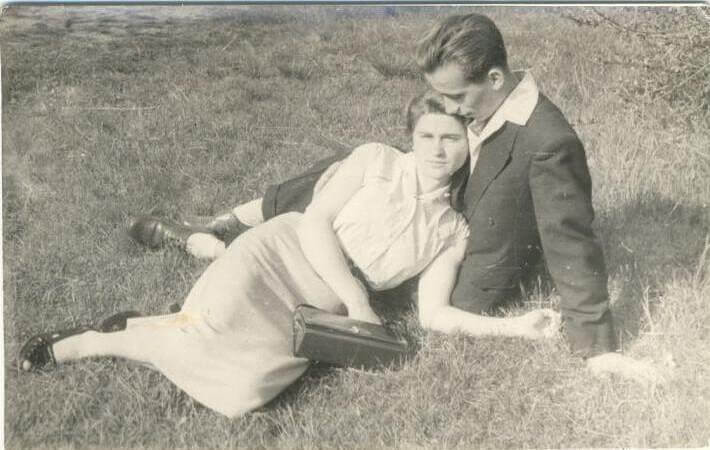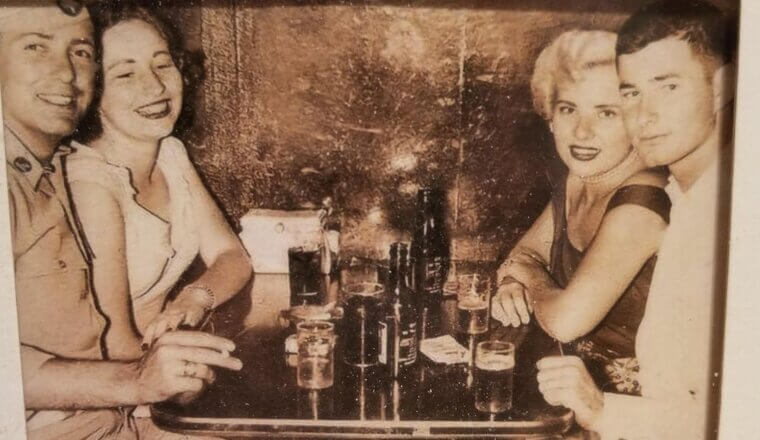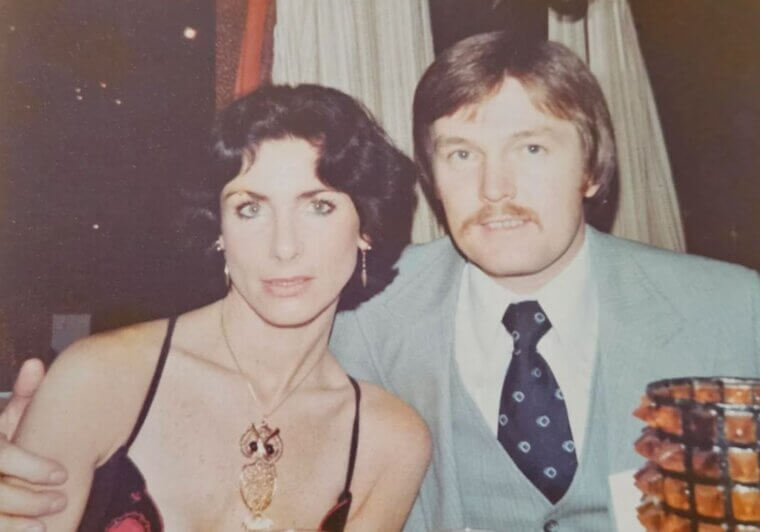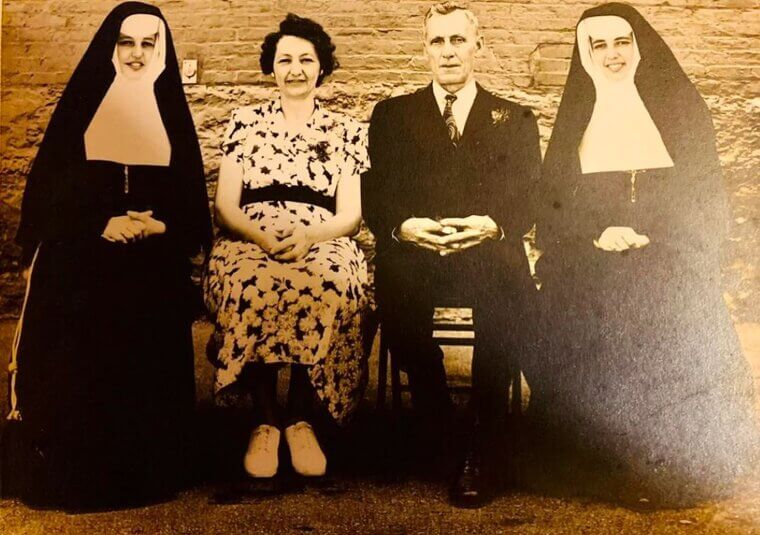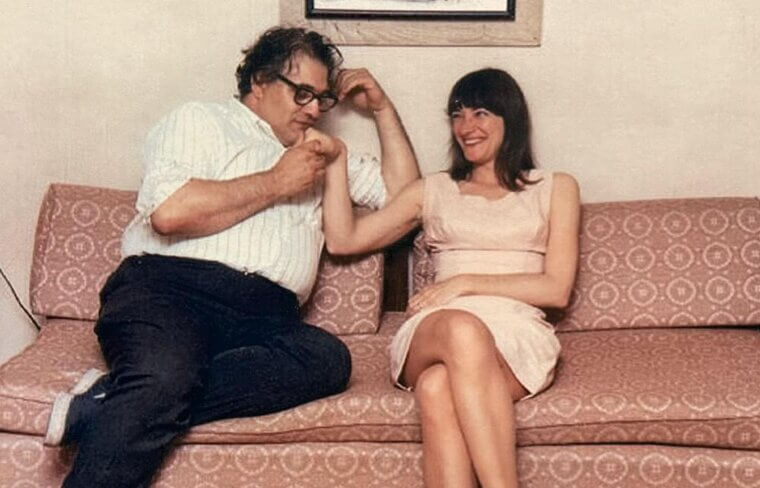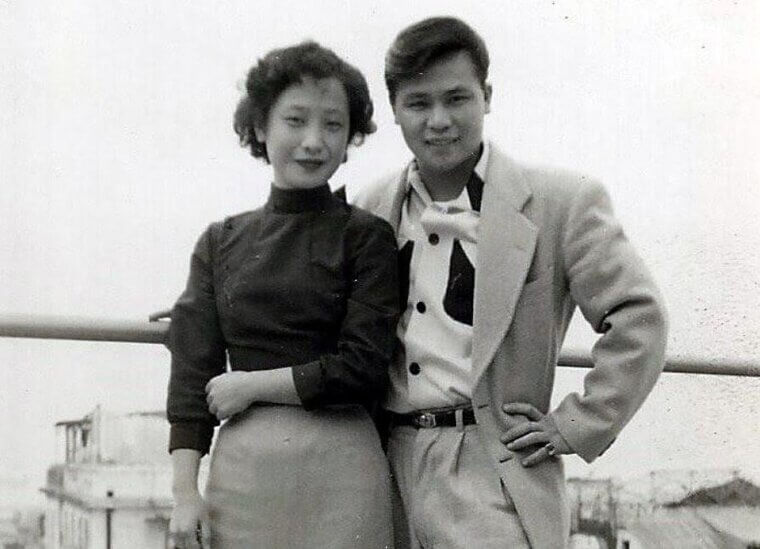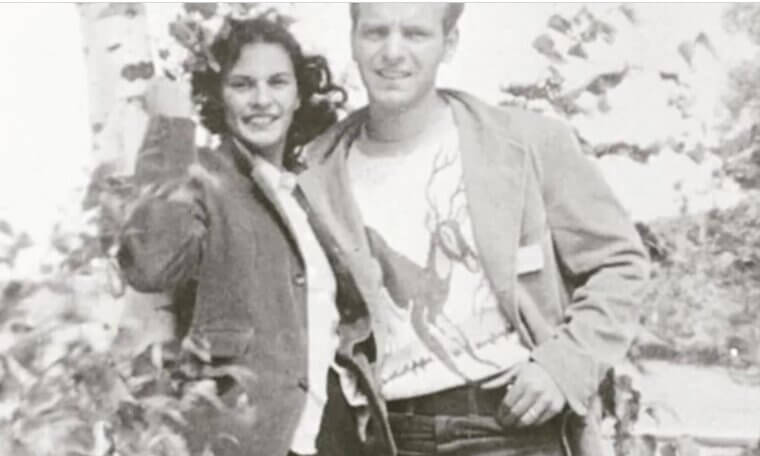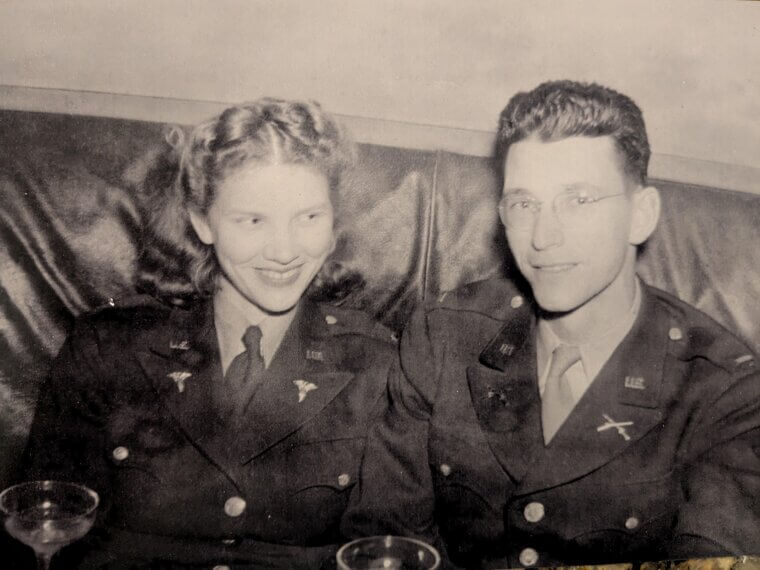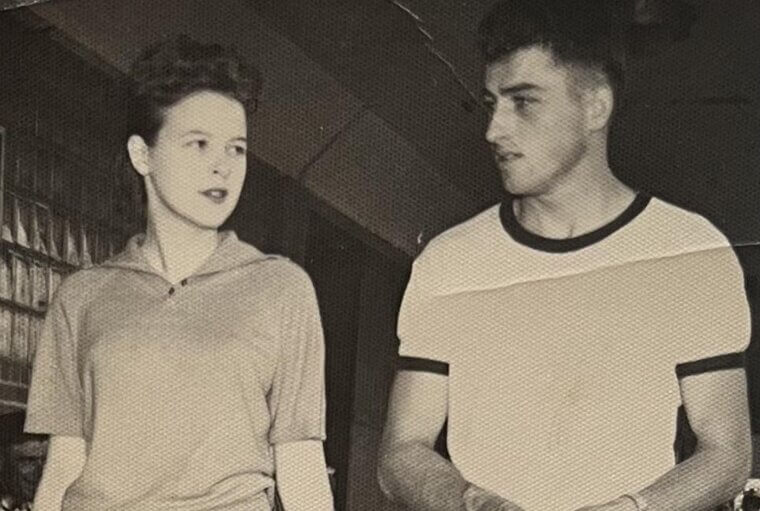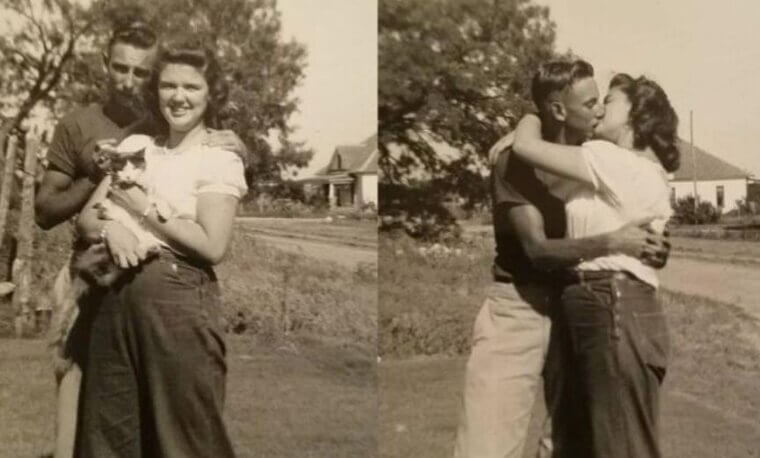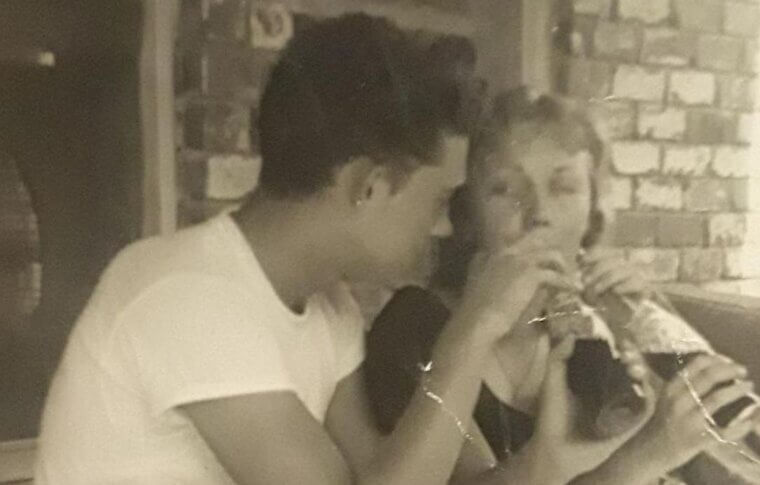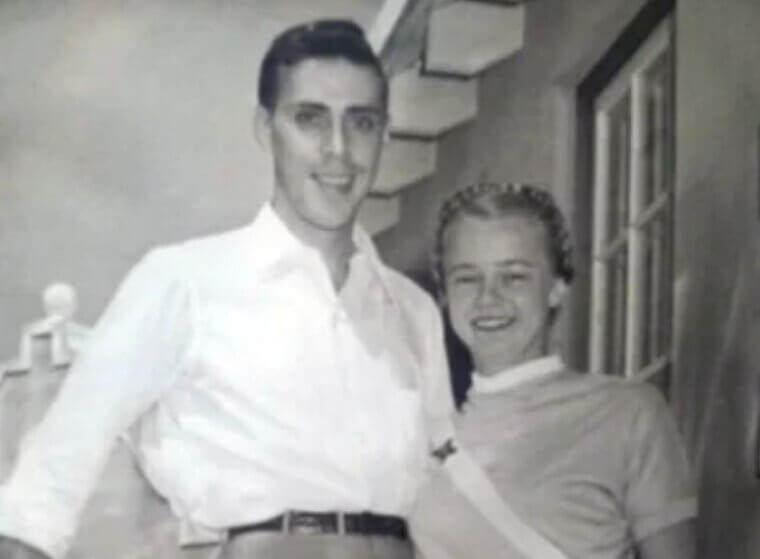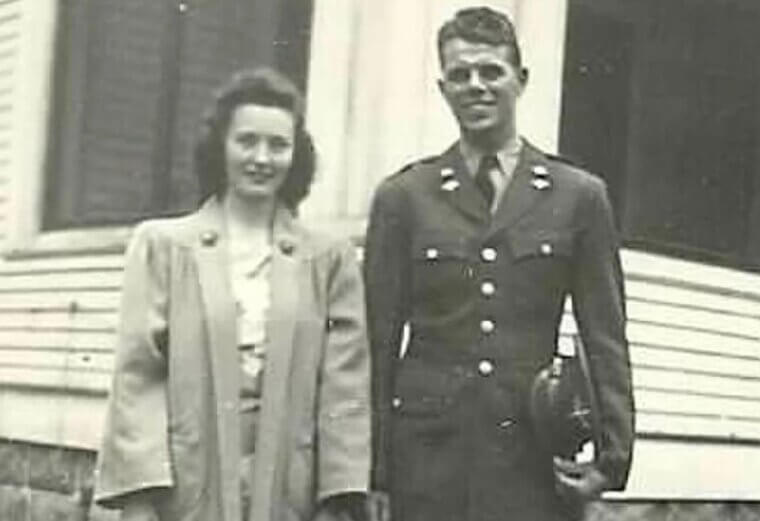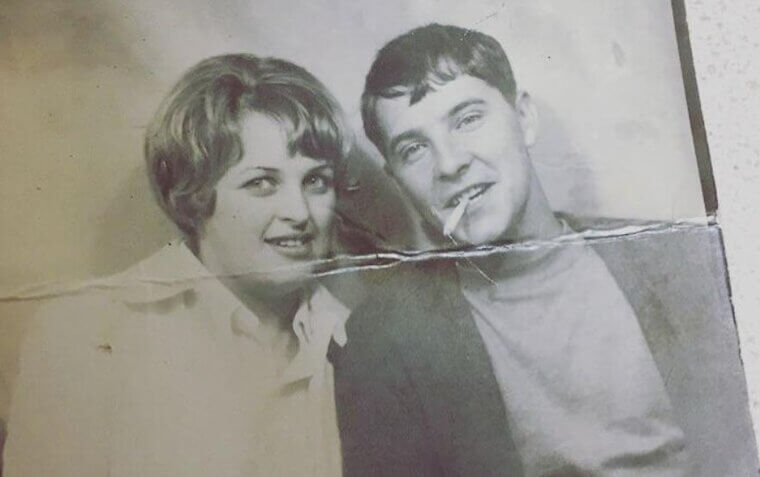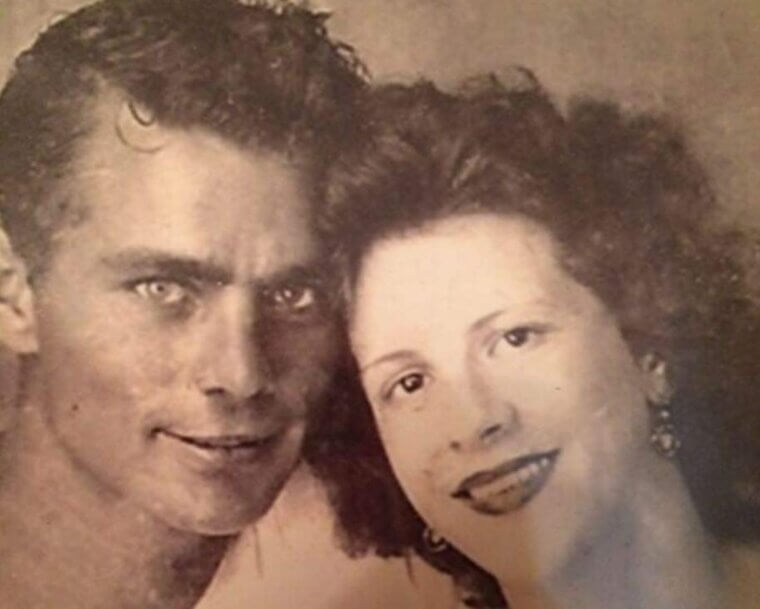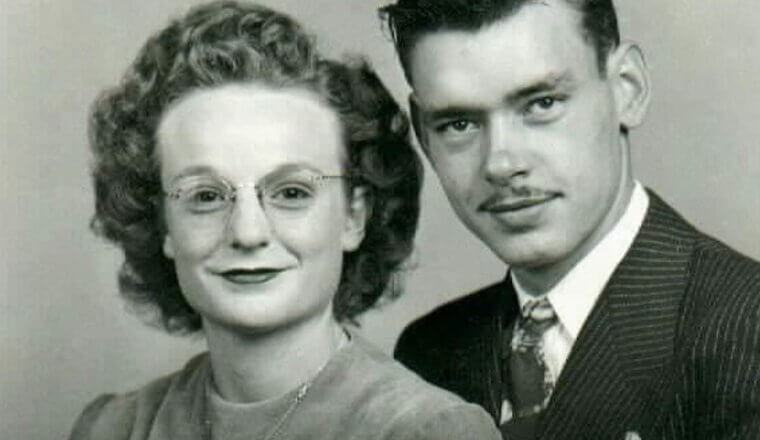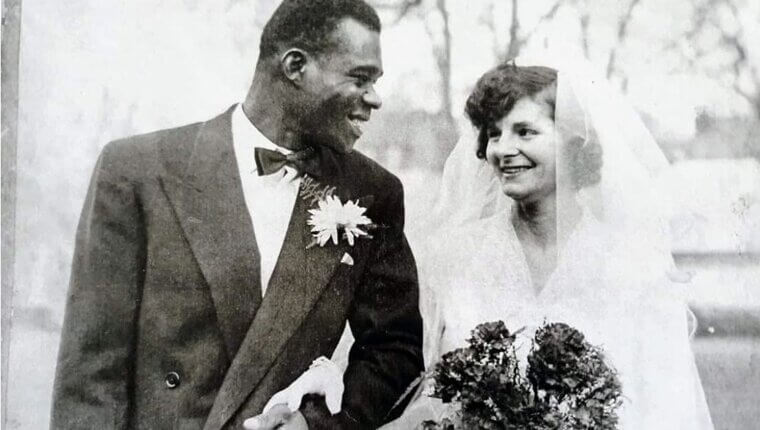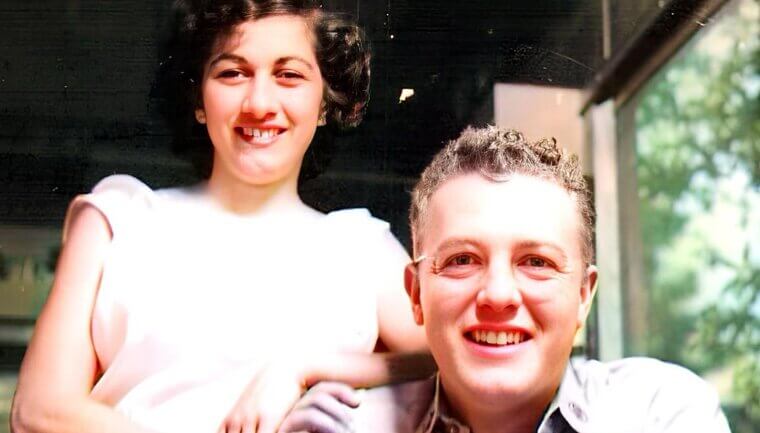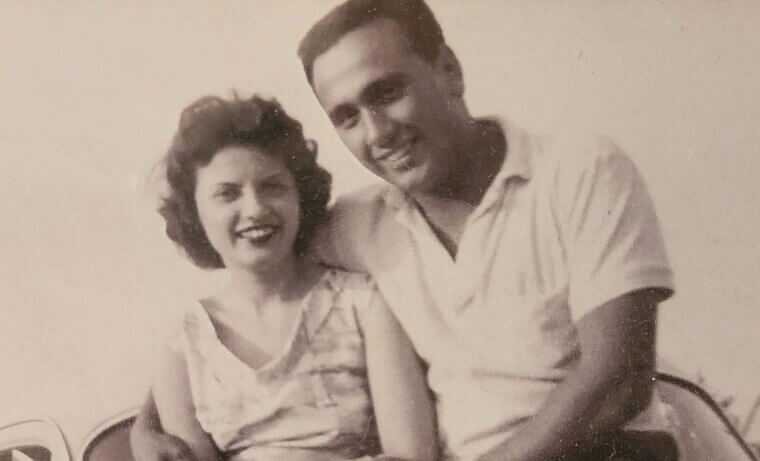Meet the Parents
Meeting the parents was seen as a meaningful milestone rather than a casual step. For Boomers, it symbolized respect, sincerity, and the desire for something genuine. Family approval mattered because it reflected shared values and stability. A polite introduction over dinner showed maturity and good intentions, reassuring parents that their child was in good company. It was an important gesture that often set the tone for deeper commitment.
Ask Her Out in Person
Before digital invites became the norm, asking someone out in person carried real weight. A face-to-face invitation required confidence, sincerity, and a willingness to be vulnerable. Boomers valued that direct approach because it reflected genuine interest rather than convenience. It showed respect, effort, and emotional honesty, qualities that built stronger connections and set the tone for meaningful relationships.
Avoid Public Dipslays of Affection
Boomers grew up in a time when romance was meant to be private, not performed for others. Kissing or hugging in public was often considered inappropriate, especially in the presence of parents or elders. Even small gestures like holding hands were done discreetly. This modesty added mystery and allowed emotional connection to develop slowly, giving relationships a sense of respect and care
Always Be a Gentleman
Holding doors open, offering a coat on a chilly evening, and speaking with polite, considerate language were more than simple habits, they were fundamental aspects of boomer dating etiquette. These actions reflected a person’s upbringing, character, and sense of responsibility. Men were expected to consistently show respect through small, thoughtful gestures, while women recognized and appreciated this attentiveness as a meaningful sign of care, consideration, and genuine interest. Such courtesies helped establish trust, admiration, and the foundation for lasting romantic connections.
Be Observant and Attentive
Noticing small details, such as a favorite dessert, preferred music, or a subtle change in mood, was a hallmark of thoughtful dating. Boomers believed that attentiveness reflected care, interest, and reliability. Observing and responding to a partner’s needs or preferences created deeper emotional connection and showed that the relationship was approached with intentionality and sincerity.
Be Polite to Servers
Manners were seen as a true reflection of a person’s character. The way someone treated waiters, ushers, or store clerks spoke volumes about their values and upbringing. Boomers believed that genuine kindness toward everyone (not just those they wanted to impress) showed integrity and respect. Courtesy was more than politeness; it was a daily practice that revealed empathy, humility, and emotional maturity.
Be Sincere
Compliments should always be genuine and heartfelt, focusing on personality, manners, effort, or thoughtful choices rather than superficial appearance alone. Boomers valued authenticity and believed that flattery, if insincere, could damage trust. Offering sincere praise showed attentiveness, respect, and care, fostering self-esteem and emotional connection. Thoughtful, honest compliments created a positive, trust-based dating environment where both partners felt genuinely seen and appreciated.
Bring Her Home Early
Returning a date home promptly showed care, respect, and attentiveness to parental expectations. Boomers believed that keeping a date’s schedule in mind demonstrated responsibility and trustworthiness. Overextending time together could create discomfort or suspicion. By respecting boundaries, a gentleman reassured both his date and her family, reinforcing his reliability and the propriety of the courtship.
Cherish Each Other
Boomers valued spending time together as one of the most important parts of dating. Every shared meal, walk, or conversation was treated as an opportunity to enjoy and appreciate the other person’s presence. Showing genuine interest, attentiveness, and gratitude for the time spent together reinforced emotional connection, fostered mutual respect, and made each moment feel meaningful, creating a foundation for a lasting and thoughtful courtship.
Don't Call Too Soon After the First Date
Boomers believed that giving space after a date demonstrated maturity and self-assurance. Waiting a day or two before calling wasn’t about playing games but about showing restraint and confidence. It allowed both people to reflect on the experience and build anticipation. When the follow-up call finally came, it carried more meaning. It showed genuine interest and respect, not impatience or desperation.
Don't Rush Physical Intimacy
Couples were encouraged to take time before engaging in physical intimacy. Building trust and understanding was paramount. Boomer dating etiquette prioritized emotional connection over physical expression, emphasizing patience and respect. This allowed relationships to develop depth and stability, ensuring affection and intimacy were based on genuine care rather than impulse or peer influence.
Don't Rush the Relationship
Patience was considered essential for building lasting love. Boomers believed that true connection developed gradually through shared experiences, mutual respect, and consistent effort. They valued the slow unfolding of a relationship, seeing it as a journey rather than a race. Rushing things was thought to make romance fleeting and superficial, while taking time nurtured deeper trust, understanding, and emotional stability.
Dress Up Nice for Date Nights
Dating wasn’t a casual affair. Men polished shoes, ironed shirts, and combed their hair carefully, while women wore dresses, styled hair, and added subtle perfume. Effort in appearance communicated respect for the other person and the occasion. Looking neat and put-together suggested seriousness about the relationship and a willingness to make a positive impression, which was considered as important as polite conversation.
Go Dancing
Dance nights were a highlight of Boomer dating culture, offering a joyful way to connect and express affection. Whether it was swing, rock ’n’ roll, or a slow dance, moving together to the music created a sense of harmony and intimacy. Dancing wasn’t only about fun, it was a shared language of emotion, energy, and chemistry. It brought people closer and often sparked lasting memories and deeper bonds.
Go Steady
Exclusivity was marked with symbols like class rings or letterman jackets. “Going steady” communicated loyalty and commitment to both the partner and the community. This public acknowledgment allowed couples to establish their relationship openly, reducing social pressures or misunderstandings. Boomers viewed these milestones as essential markers of progress toward meaningful, stable relationships.
Group Dates First
Couples often started in group settings before going out alone. Group dates offered a safe environment where friends could interact, have fun, and get to know each other without pressure. Parents approved because it ensured safety and appropriate behavior. Teens could build chemistry naturally, enjoy laughter and shared activities, and gradually progress toward private one-on-one dates, creating a comfortable transition from friendship to romance.
Keep Dates Fun
Dates were meant to be enjoyable, so negative or critical topics were avoided. Humor, anecdotes, and lighthearted discussion dominated early interactions. Boomers believed a positive conversational tone made people feel at ease, encouraged connection, and left lasting favorable impressions. Focusing on joy and shared experiences created a welcoming environment for romance to grow naturally.
Attend Church and Community Events Together
Many boomers viewed attending religious services, church picnics, or community gatherings with a date as a meaningful way to show respect and shared values. Participating together reflected sincerity, wholesome intentions, and family-friendly behavior that parents and peers admired. These structured, public settings encouraged good manners, built mutual trust, and demonstrated a willingness to align with moral expectations, social traditions, and the importance of belonging to a supportive community.
Keep PDA Classy
Holding hands or sharing a brief hug in public was perfectly acceptable, but anything more was considered inappropriate. Boomers believed that affection should be expressed with grace and restraint, reflecting good manners and self-respect. Public make-out sessions were viewed as tasteless or immature, detracting from the dignity of the relationship. Subtle gestures of affection were seen as more meaningful, showing emotional depth rather than impulsive desire.
Keep Public Gestures Subtle
When out in public, boomer couples were expected to behave politely and thoughtfully, showing respect for those around them. Simple actions such as helping a date with a coat, holding a door, or navigating a crowded sidewalk demonstrated attentiveness and consideration. These subtle, courteous gestures reflected good character, social awareness, and care for the partner, allowing the relationship to grow naturally while maintaining propriety, respect, and a sense of intentionality in courtship.
Keep Romance Private
Boomers valued discretion and believed that some things were meant to stay private. They kept love letters, heartfelt conversations, and shared memories between the two people involved. Oversharing relationship details with friends was seen as disrespectful to the bond. Maintaining privacy reflected emotional maturity and loyalty, helping protect the relationship from unnecessary opinions, gossip, and misunderstandings. It kept love intimate, sincere, and grounded in trust.
Keep Secrets Sacred
Trust was central to dating. Personal stories, feelings, or private experiences shared on a date were expected to remain confidential. Boomers viewed this discretion as a cornerstone of respect, intimacy, and integrity. Protecting a partner’s confidences demonstrated reliability and strengthened emotional bonds, creating a sense of security and loyalty early in the courtship process.
Keep the Conversation Classy
Swearing, crude jokes, and gossip were considered major turnoffs on a proper date. Boomers believed that true charm came from being witty, attentive, and genuinely engaging, not from trying to shock or impress. Politeness and thoughtful conversation showed respect and refinement. Speaking clearly and with intention reflected intelligence and confidence, qualities that left a lasting, positive impression on any companion.
Make Intentions Clear
Clarity about romantic interest was highly valued in boomer dating culture. Honesty was seen as essential to prevent misunderstandings, avoid unnecessary heartache, and build trust from the very beginning. Being upfront about whether one sought a serious, long-term relationship or a lighter companionship allowed both individuals to align expectations respectfully, maintain personal integrity, and navigate courtship in a way that honored social norms and mutual respect.
No Distractions
Even without smartphones, Boomers believed in giving their full attention during dates. Being fully present (listening, engaging, and responding thoughtfully) was seen as a sign of respect and genuine interest. Undivided focus showed that the other person mattered and that the time spent together was valued. Attentiveness wasn’t just polite; it was a way to build connection, trust, and emotional intimacy.
No Kissing on the First Date
Boomer dating etiquette prized restraint and a sense of mystery in relationships. Physical affection was expected to follow the development of an emotional bond rather than lead it. Many believed that kissing too soon could make the relationship feel hurried or superficial. Waiting allowed anticipation to grow naturally and signaled genuine interest and serious intentions. This approach emphasized patience, respect, and the thoughtful progression of romance.
No Politics or Religion Talk
On early dates, controversial or potentially divisive topics like politics, religion, or money were carefully avoided to keep the atmosphere lighthearted and enjoyable. Boomers preferred focusing on shared interests, hobbies, or family stories that encouraged laughter and connection rather than arguments. This approach helped ensure that first impressions were positive, conversations flowed naturally, and both people felt comfortable exploring the beginnings of a meaningful relationship.
Plan the Date in Advance
Boomers placed great importance on effort and intentionality in dating. Taking the time to plan ahead (selecting a restaurant, confirming the schedule, or purchasing movie tickets) demonstrated thoughtfulness and reliability. It showed that one valued the other person’s time and experience. Conversely, last-minute plans were often seen as careless or inconsiderate, signaling a lack of respect or commitment. Thoughtful preparation was a hallmark of genuine interest and care.
Respect Curfews
For many Boomers, curfews were an important part of social life, particularly for young women. Adhering to them demonstrated respect for family rules and an understanding of personal responsibility. Following curfew signaled reliability and trustworthiness, while breaking it could harm one’s reputation and suggest carelessness or disregard for boundaries. Observing these limits was a reflection of character and maturity in the eyes of peers and adults alike.
Respect Each Other's Passions
Expressing genuine interest in a date’s hobbies, talents, or accomplishments was seen as both polite and caring in boomer dating culture. Listening attentively and asking thoughtful questions demonstrated curiosity and respect. Encouraging a partner’s passions fostered confidence, strengthened emotional intimacy, and created a supportive environment where both individuals felt valued not just for their appearance, but for their unique qualities, efforts, and personal achievements.
Respect Her Reputation
A woman’s social reputation mattered greatly. Boomers expected men to act honorably, avoid gossip, and ensure her dignity remained intact. Public displays, rumors, or inappropriate behavior were strongly discouraged. Protecting a partner’s reputation was a reflection of character and moral values, showing that the man was serious, respectful, and trustworthy in both private and public settings.
Respect Quiet Moments
Boomers understood that not every moment of a date needed to be filled with conversation. Respecting a partner’s need for quiet time allowed both individuals to reflect, relax, and feel comfortable in each other’s presence. Observing these pauses demonstrated emotional maturity, patience, and attentiveness. Sharing silence respectfully helped deepen connection, build trust, and create a natural, thoughtful rhythm in courtship where companionship mattered more than constant words.
Save Big Declarations For Later
Saying “I love you” too soon was considered immature. Boomers preferred letting emotions develop naturally before verbalizing deep affection. The idea was to prove love through consistent actions, thoughtful gestures, and reliability. Waiting to express strong feelings demonstrated patience, sincerity, and a deeper understanding of commitment, helping to build trust before entering more serious stages of a relationship.
Take Your Romance Seriously
For many boomers, dating wasn’t casual. It was a path toward lifelong partnership. Early interactions focused on character, values, and compatibility rather than entertainment alone. Dates were meant to evaluate mutual interest with long-term intentions in mind. Understanding this mindset influenced behavior, choices of venues, and the depth of conversation, as both parties considered whether the relationship could lead to marriage.
The Man Pays For Dinner
In the boomer era, men were expected to cover the cost of a date. Paying wasn’t about showing dominance; it was a gesture of courtesy, care, and respect. Even if the woman offered, a gentleman would politely insist. This tradition reflected social norms, personal responsibility, and a desire to make the other person feel valued and appreciated, setting a positive tone for the evening.

